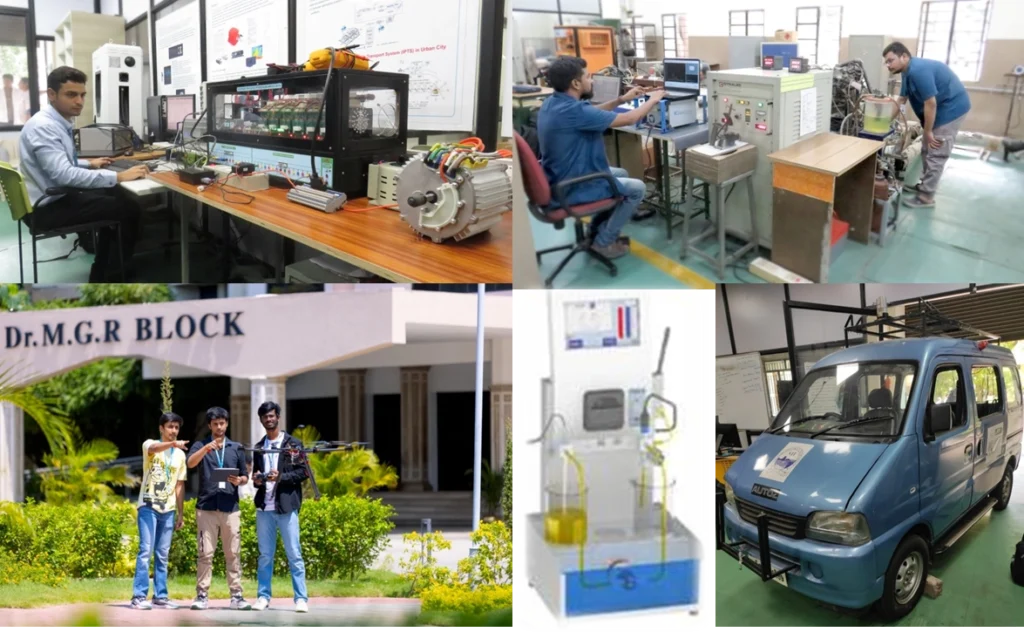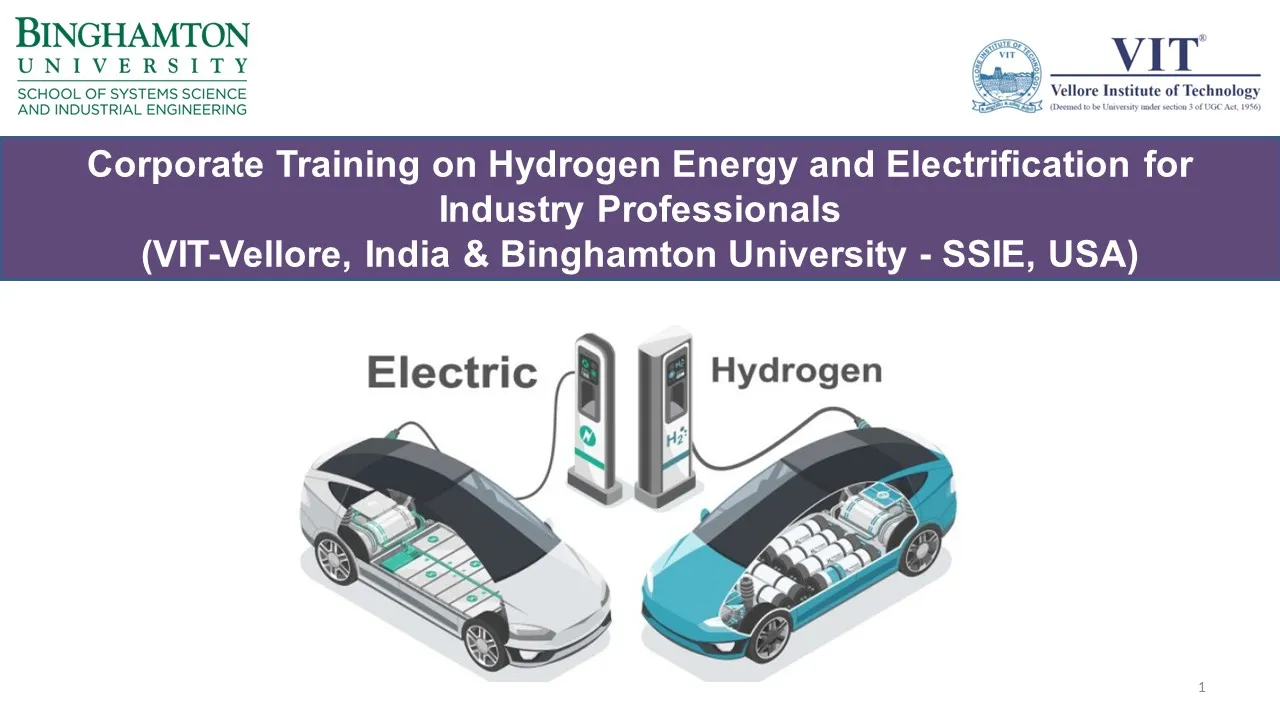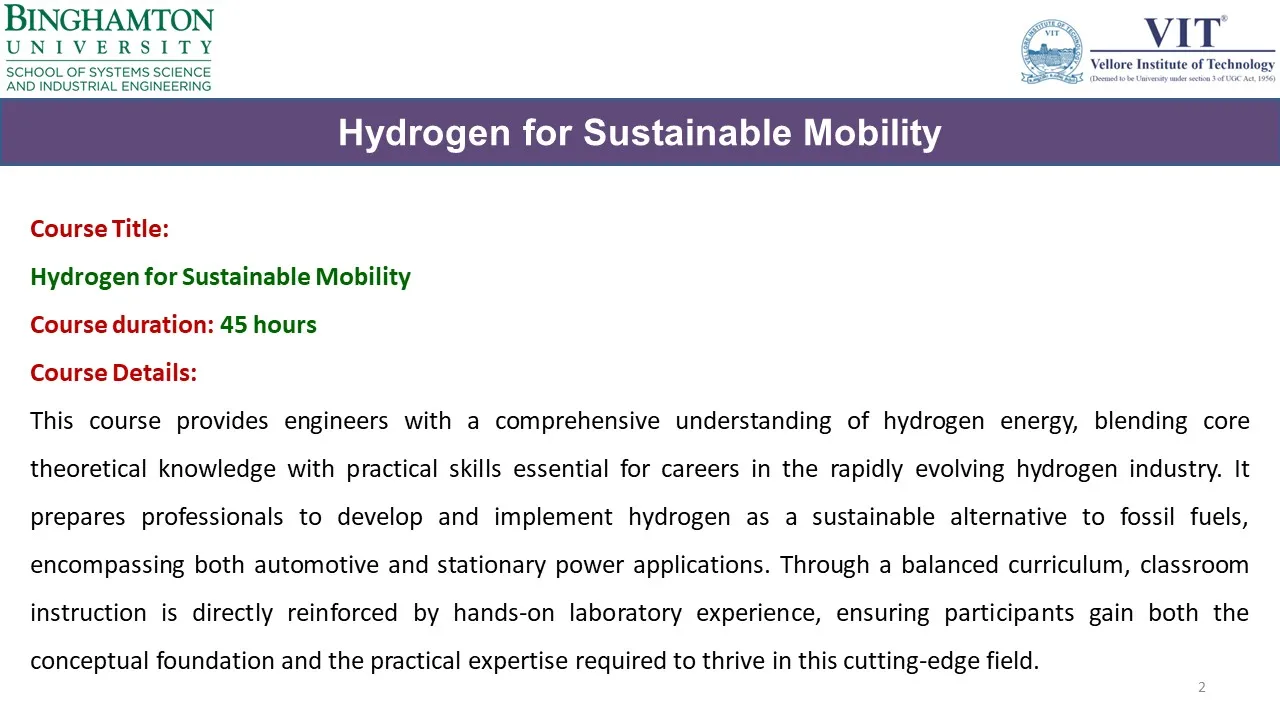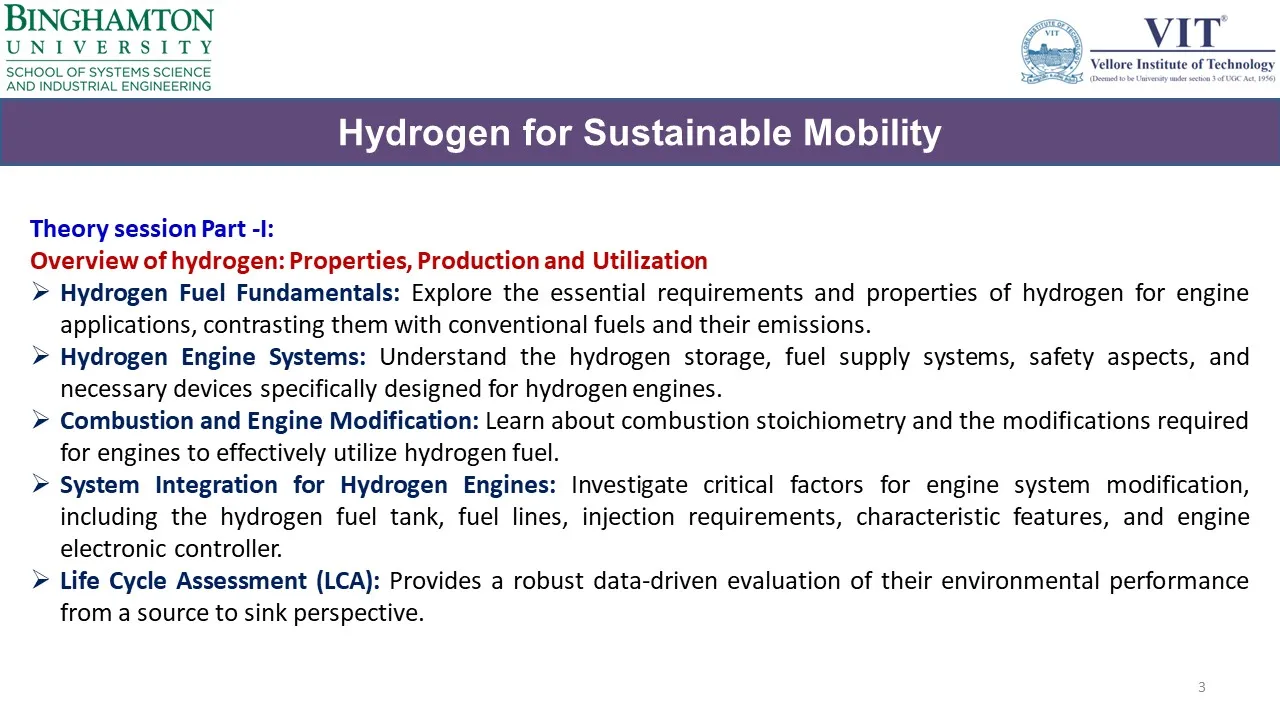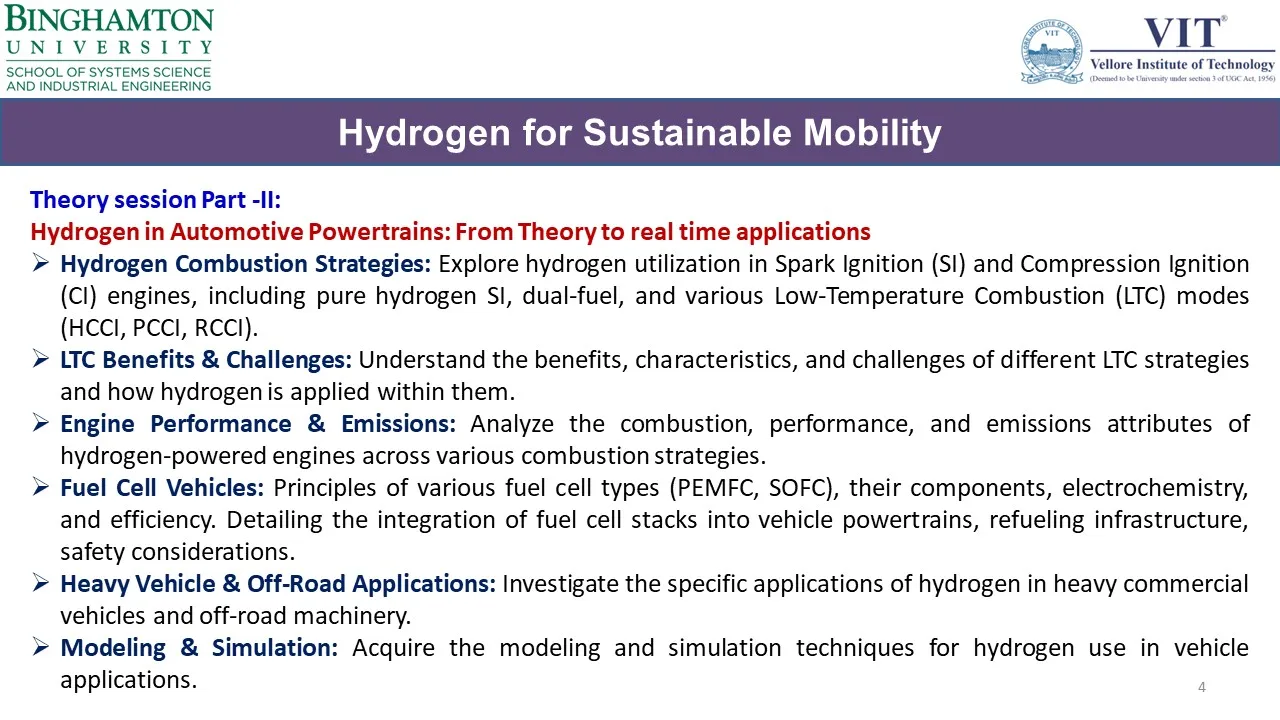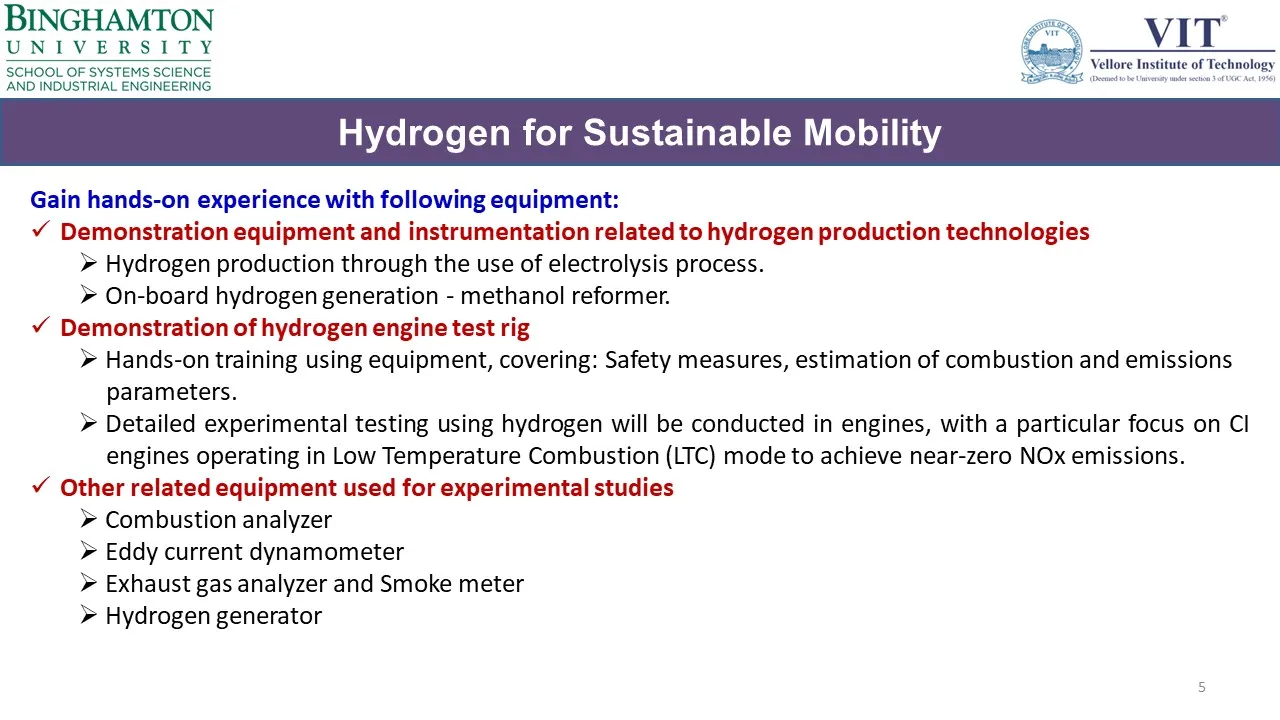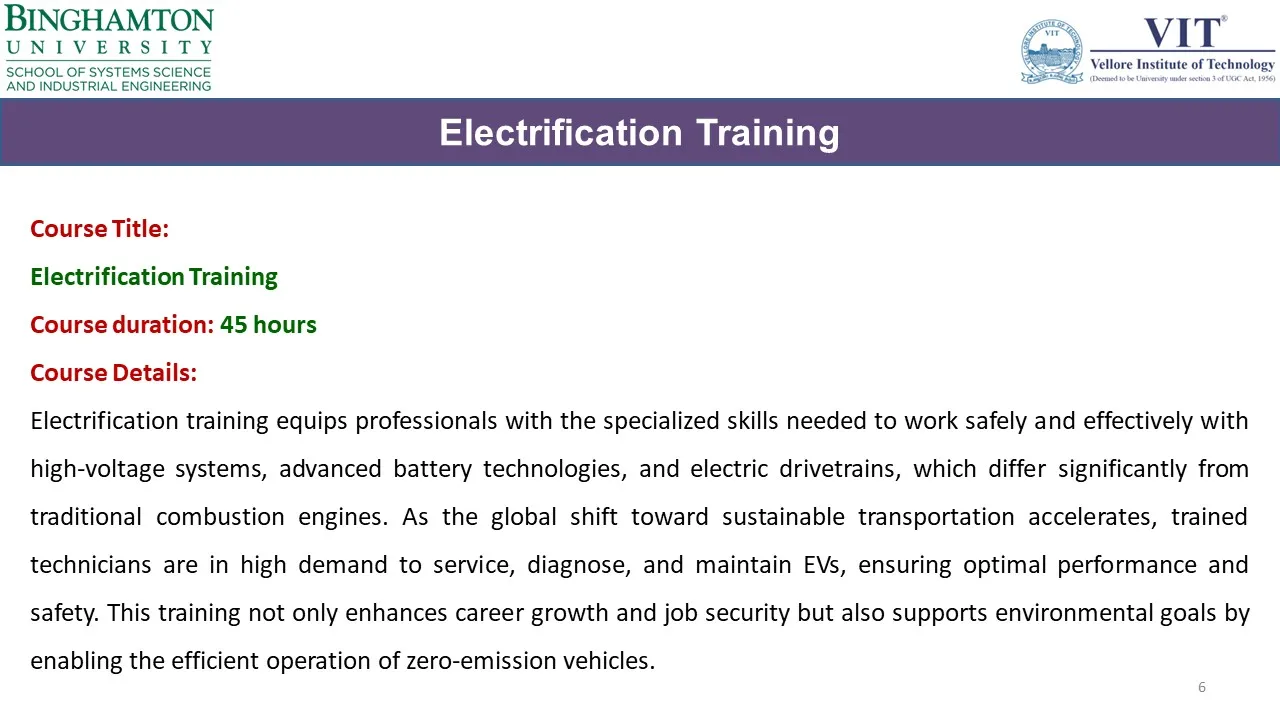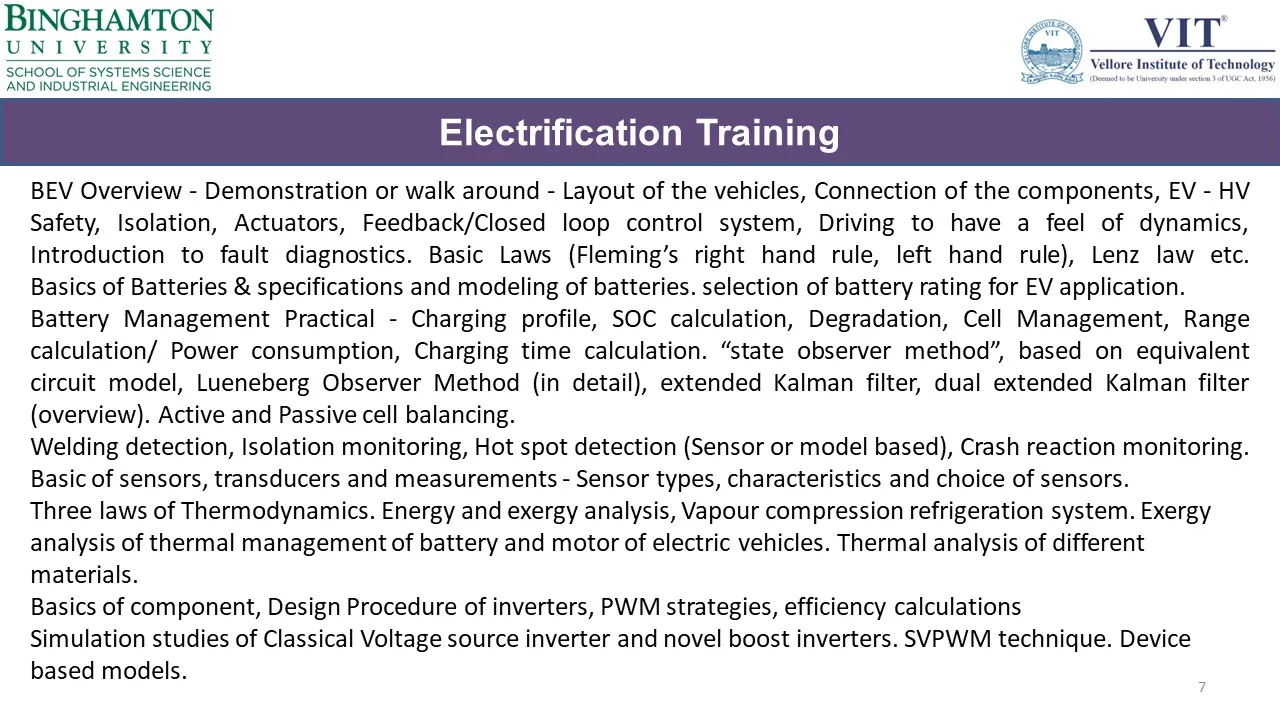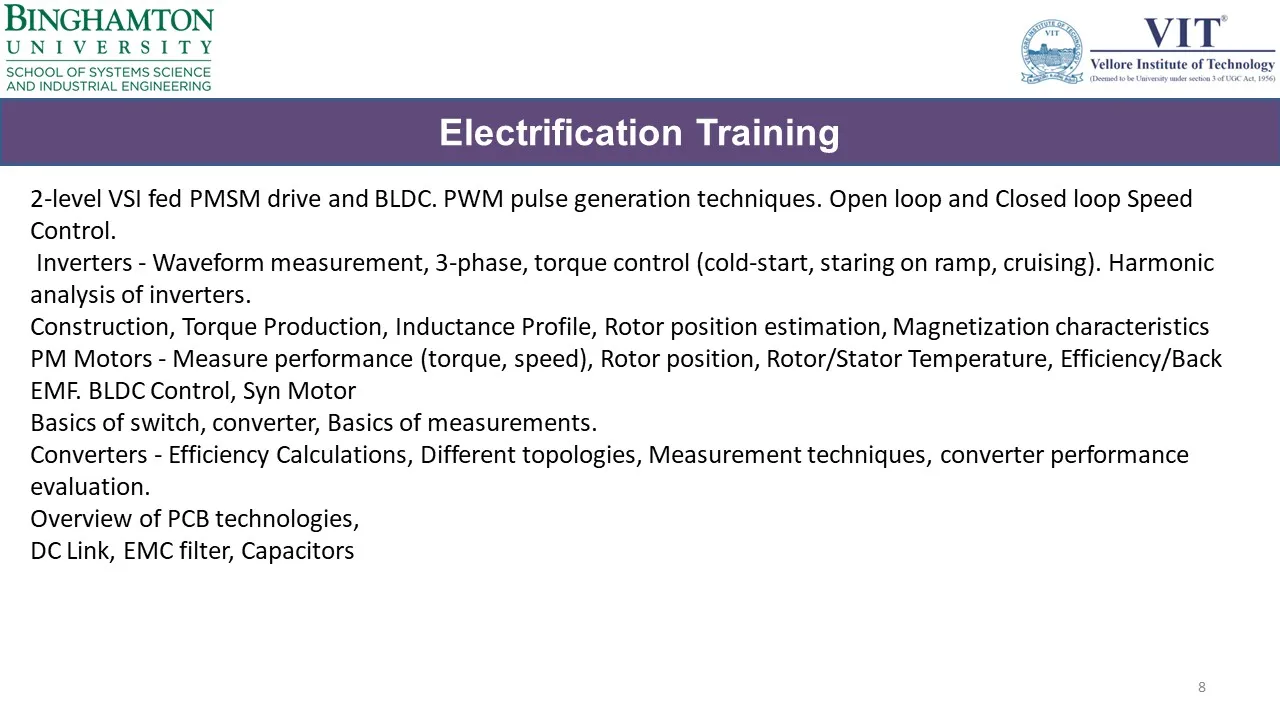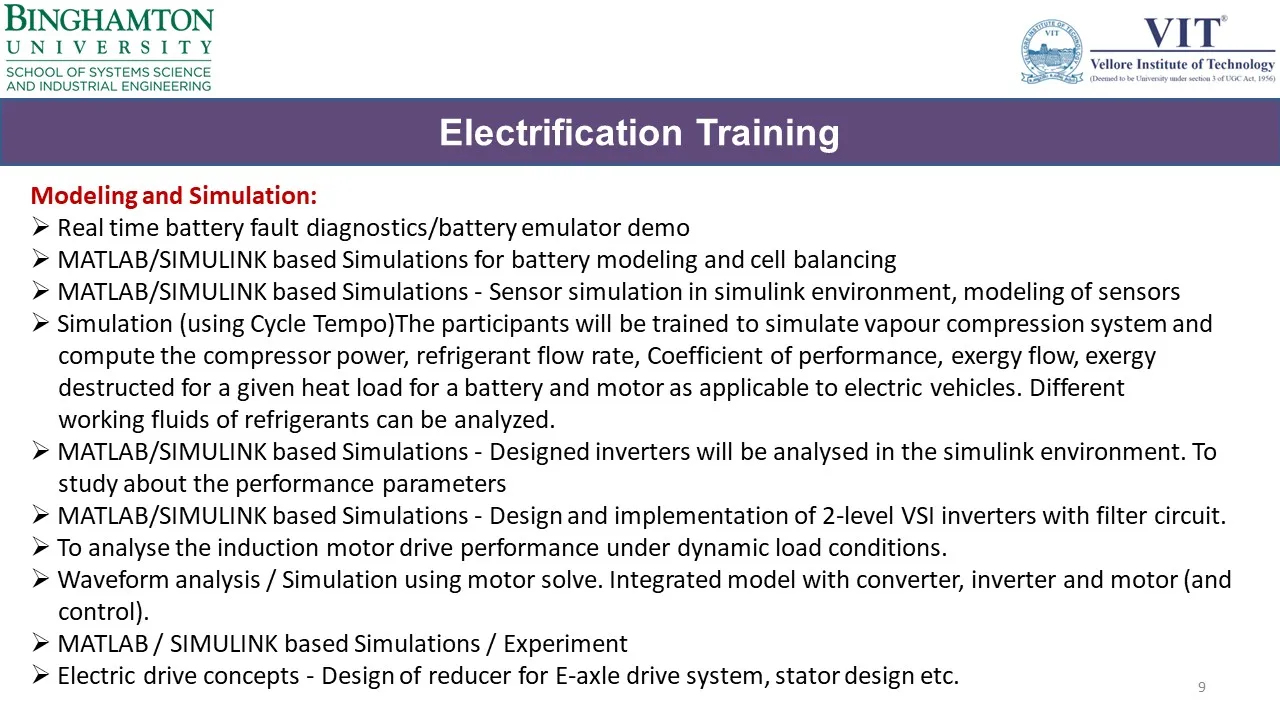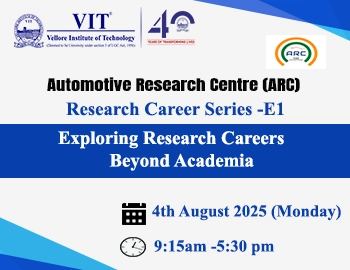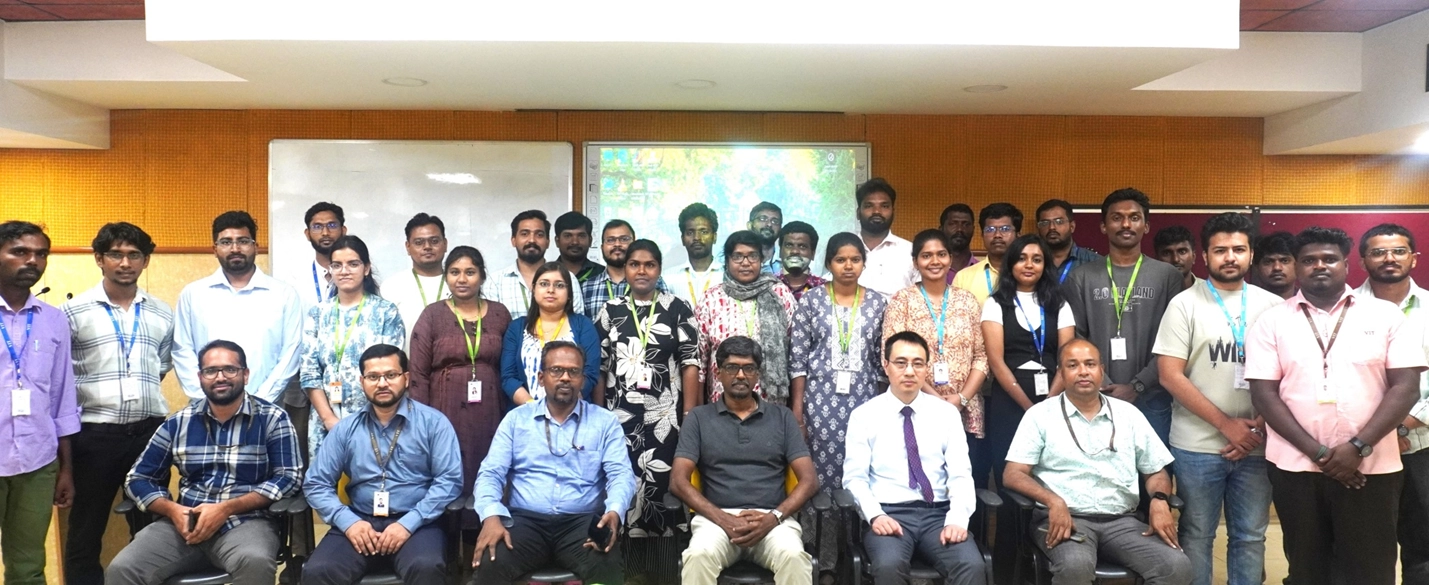Automotive Research Centre (ARC)
Automotive Research Centre (ARC)
About Automotive Research Centre
Overall, ARC at VIT plays a crucial role in advancing automotive engineering through its focus on innovation, sustainability, and technological advancements in both traditional internal combustion engines and cutting-edge autonomous vehicle technologies.
Enable innovative automotive technologies and facilitate seamless technology transfer for decarbonized and safer transport via sustainable and smart mobility systems, aligning with national and global goals.
- To develop next-gen hydrogen, hybrid, and AI-driven mobility technologies through cutting-edge research and fostering strategic collaborations.
- To pioneer predictive safety and vehicle health monitoring through physics-based neural networks and advanced diagnostics systems.
- To advance autonomous mobility and next-gen wireless charging, integrating terrestrial and aerial transport systems.
Corporate Training on Hydrogen Energy and Electrification for Industry Professionals
This course provides engineers with a comprehensive understanding of hydrogen energy, blending core theoretical knowledge with practical skills essential for careers in the rapidly evolving hydrogen industry. It prepares professionals to develop and implement hydrogen as a sustainable alternative to fossil fuels, encompassing both automotive and stationary power applications. Through a balanced curriculum, classroom instruction is directly reinforced by hands-on laboratory experience, ensuring participants gain both the conceptual foundation and the practical expertise required to thrive in this cutting-edge field.
Academic Faculties
Major Research Areas
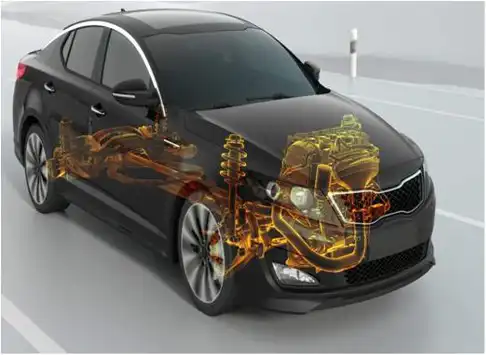
Internal Combustion Engines
- Hydrogen, CNG, Ammonia, Methanol & Ethanol
- Advanced combustion strategies
- Emission control and fuel formulation
- Engine management system
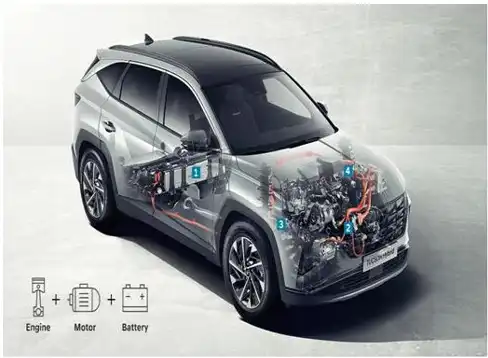
Hybrid and Electric Vehicles
- Lithium-ion battery, testing & BMS
- Motor simulator & EV powertrain system
- Energy management strategy
- HIL and SIL

Autonomous Vehicles
- Next generation ITS for smart mobility
- Computational intelligence
- Algorithms for autonomous vehicles
- Environment perception
Insights
Events
- Upcoming Event
- Past Event
Past Events
Past Events
Exploring Research Careers Beyond Academia
Feedback
Guest Speaker Feedback
Thank you very much for giving this opportunity and it was a great initiative and event. I will stay in touch and would like to participate in future events..Dr. Dhinesh Kumar R, (20PHI0007)Principal AI/ML Architect , https://oostudioai.com/
Student Feedback
The event offered insightful discussions on building a research-driven career and contributed meaningfully to my academic growth … Shuppriya (24MPI0010 )
Thank you for your support and for organizing such a valuable event .. Lavu Anvita (24MPI0002)
Research Highlights
- Developed Syngas fuelled gen-set engine for rural application with minimum power derating.
- Team develops novel multi-fuel technology to run spark-ignition engines either on CNG or LPG.
- Researchers develop a novel injection strategy for hydrogen- powered HCCI engine technology.
- Team establishes hybrid electric vehicle system for smart mobility.
- Team develops sustainability and composition based evaluation of biofuel energy resources.
- Researchers work on three-wheeler electric vehicle for safer and comfortable vehicles for the future.
- Researchers find alternative way of fuel metering system using IoT techniques.
- Team develops framework for level 3 autonomy for smart mobility
- Researchers develop next generation ITS for smart mobility
Product developed
- Syngas Fuelled Gen-Set SI Engine
- Smart Inverter-e Compressor-E vehicle
Contact
Dr. Thangaraja J
Professor Grade 1 & Director
Automotive Research Centre
- 04162202270
- director.arc@vit.ac.in



